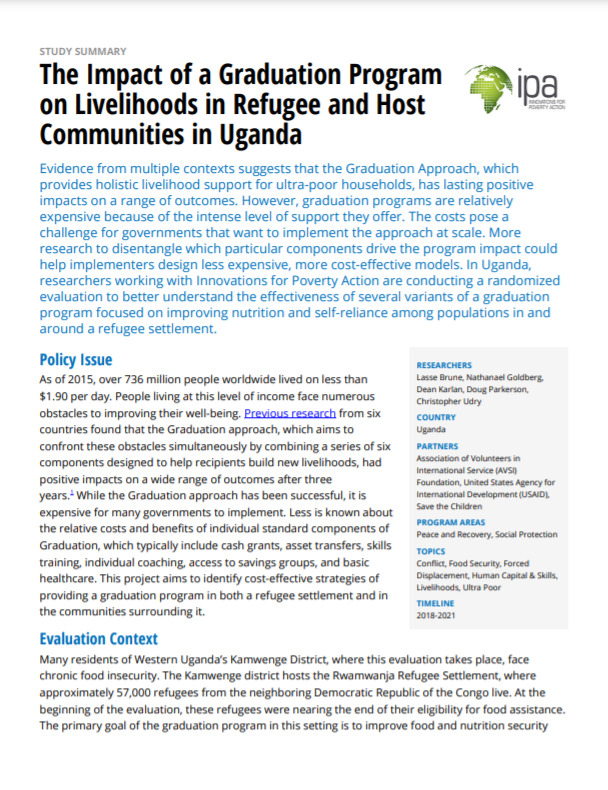The Impact of a Graduation Program on Livelihoods in Refugee and Host Communities in Uganda
By Max Gollin • October 26, 2021 • 1 minute read

Lasse Brune, Nathanael Goldberg, Dean Karlan, Doug Parkerson,
Christopher Udry (Ongoing)
Evidence from multiple contexts suggests that the Graduation Approach, which provides holistic livelihood support for ultra-poor households, has lasting positive impacts on a range of outcomes. However, graduation programs are relatively expensive because of the intense level of support they offer. The costs pose a challenge for governments that want to implement the approach at scale. More research to disentangle which particular components drive the program impact could help implementers design less expensive, more cost-effective models. In Uganda, researchers working with Innovations for Poverty Action are conducting a randomized evaluation to better understand the effectiveness of several variants of a graduation program focused on improving nutrition and self-reliance among populations in and around a refugee settlement.

